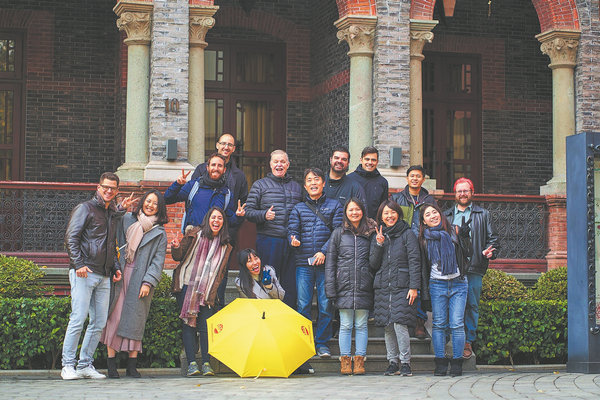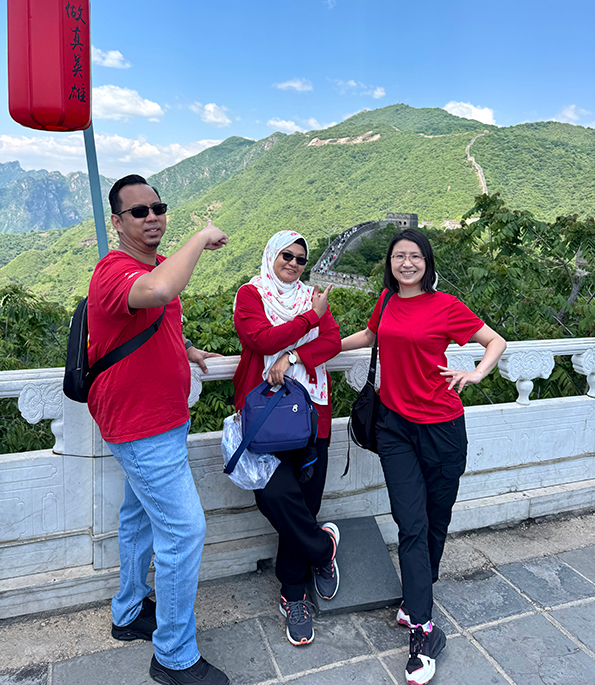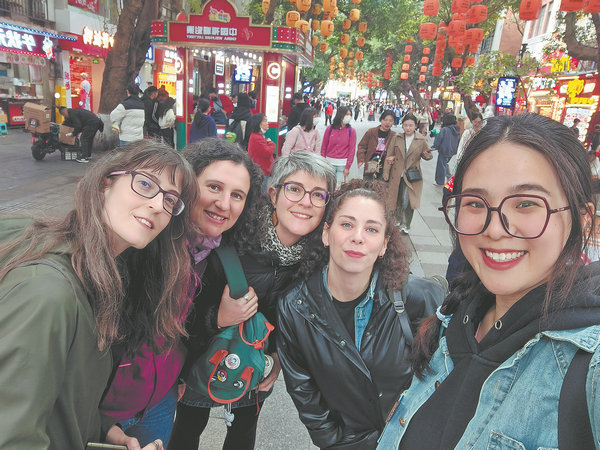
In Guangzhou, He Weijing has noticed something remarkable. "At the end of last year, the number of foreign tourists in Guangzhou was much higher than in midyear. You can hear different languages everywhere now," she said.
A post-1995 freelancer who grew up in the city, He has been working as a foreign-language guide for two years. Fluent in English, Cantonese, and Italian, she sees herself as both storyteller and cultural ambassador.
Her experience reflects a broader trend. According to the National Immigration Administration, China recorded 51.27 million foreign entries from January to August 2025, up 27.8 percent year-on-year. Among them, 15.89 million travelers arrived visa-free — a surge of 52.1 percent — now accounting for more than 60 percent of all foreign arrivals.
She attributes the increase to streamlined visa policies, more affordable flights, and China's growing visibility on social media. "Many people used to think it was difficult to visit," she said. "Now they're curious to see for themselves what China is really like."
To help visitors connect with the city's character, He designs tours that highlight Lingnan traditions — from the tanglongmen, a three-layered half-gate that balances ventilation and privacy, to the fruit trees locals plant in their courtyards. "When I explain these designs, many foreigners find them ingenious," she said.
For kung fu fans, she arranges trips to nearby Foshan, home to lion dance performances and Bruce Lee's legacy.

Guiding with care
Like He, Zhou Qi views her work as a form of cultural exchange. Having traveled to 38 countries, she describes guiding as "a way to help people understand China better".
"At first, I just loved traveling," she said. "But then I realized guiding is also a way to correct misunderstandings. Many foreigners imagine China as unsafe or chaotic. Talking with them helps bridge such gaps."
She has led vinyl collectors to hidden record shops in Beijing, anime fans to subculture stores, and families on rickshaw rides through hutong, where elderly residents welcomed them with traditional music.
"At the end of the tour, many told me their impressions of China had changed. That's the most rewarding part," Zhou said.
Sometimes, her work carries unexpected weight. Zhou recalled one client collapsing from heatstroke during a sports event last summer. "I stayed calm, paid the medical fees, and contacted his family," she said. "It was stressful, but it built trust across borders."
Thanks to China's visa-free policy, the client's wife was able to fly in from Australia within days.
For Zhou, each journey has meaning. "Some of my guests are elderly and may only visit China once in their lifetime. It's precious to know that we spent a meaningful day together," she said.
That same sense of purpose drives Dinna (pseudonym) in Shanghai. On a humid summer afternoon, she led a group of foreign visitors along the Bund, one of the city's most famous landmarks. As they posed against Pudong's glittering skyline, she held up a black-and-white photo of the area in the 1990s — when it was still farmland.
"Back then, there was nothing here," she said. "The Oriental Pearl Tower was the first to rise, and now we have the 'kitchen trio' of skyscrapers."

For her guests, the skyline symbolizes China's transformation. For Dinna, it mirrors her own — from a nine-to-five office worker to a professional guide. A decade ago, she quit her job to set off on a solo journey across South America. "I didn't know where it would lead me," she recalled. "But I wanted a challenge."
Inspired by a "city walk" she joined abroad, Dinna returned home and founded a studio in 2018 that offers customized tours for international travelers. Her groups explore the Bund, Nanjing Road, and the former French Concession area — familiar landmarks told through fresh stories.
One popular stop is the "matchmaking corner" in People's Park, where parents display profiles of their children in search of partners.
"Foreigners are always curious why such a tradition still exists in a modern city," she said. "It opens conversations about family, gender, and everyday life in China."
For Dinna, being a tour guide is more than a job — it's a philosophy. "Language skills are just the foundation," she said. "The key is cross-cultural communication — knowing how to connect with people on their terms. That's what makes the job meaningful."



